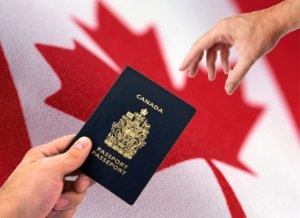Breaking Down Canada’s Express Entry System: How It Works
Canada’s Express Entry system is one of the most popular ways skilled workers from around the world can apply for permanent residency. It’s fast, points-based, and fully online, making it one of the most efficient immigration systems globally. Below, we break down exactly how it works step by step so you can understand what it takes to get started, how to boost your chances, and what to expect throughout the process.
What is Express Entry?
Express Entry is Canada’s online immigration system for skilled workers. It manages applications for three programs and uses a points system to rank candidates. If you’re eligible, you can enter the pool and compete for an invitation to apply for permanent residence.

- Federal Skilled Worker Program (FSWP): For applicants with foreign work experience.
- Federal Skilled Trades Program (FSTP): For skilled trade workers.
- Canadian Experience Class (CEC): For those who have already worked or studied in Canada.
If you’re eligible for any of these programs, you can create an Express Entry profile. Then you’re entered into a pool of candidates, ranked based on your qualifications using a points system called the Comprehensive Ranking System (CRS).
Read: Canada Express Entry System: A step-by-step guide
How Express Entry Works
The process involves checking if you qualify, gathering documents, creating a profile, getting a CRS score, and waiting for an invitation. Each step plays a key role in helping you move forward successfully.
Check Eligibility
Before creating a profile, make sure you qualify under at least one of the three programs. Key factors include:
- Age
- Education
- Work experience (at least 1 year in the last 10 years)
- Language proficiency (English or French)
- Proof of funds
- Adaptability (e.g., job offer, Canadian education)
Use the official Eligibility Tool on the Government of Canada website to check.
Gather Required Documents
You’ll need these before you create your profile:
- Passport or travel document
- Language test results (IELTS, CELPIP, or TEF)
- Educational Credential Assessment (ECA) for foreign education
- Proof of work experience (reference letters, pay stubs)
- Proof of funds (bank statements)
- Job offer (if you have one)
Make sure all documents are accurate and up to date. Mistakes or missing information can delay or disqualify your application.
Create an Express Entry Profile
You submit your profile online through the IRCC website. You’ll answer questions about:
- Personal background
- Education
- Work history
- Language scores
- Family members
- Proof of funds
Your profile is then entered into the Express Entry pool, where you’re assigned a CRS score out of 1,200.
Understanding the CRS Score
The CRS ranks your profile out of 1,200 points based on your skills, experience, and other factors. A higher score means a better chance of getting invited. Learn what affects your score and how to improve it.

- Core Human Capital Factors: Age, education, language ability, and work experience.
- Spouse Factors (if applicable): Education and language ability.
- Skills Transferability: Combination of education and work skills.
- Additional Points: For a valid job offer, provincial nomination, Canadian education, or siblings in Canada.
Maximum CRS points:
- Without spouse: 1,200
- With spouse: 1,200 (different distribution)
Most candidates score between 400 and 500. To improve your score, consider:
- Retaking language tests
- Getting a job offer
- Studying in Canada
- Applying to a Provincial Nominee Program (PNP)
Read: The Ultimate Guide to Canada Express Entry for Self-employed Individuals
Invitation to Apply (ITA)
Every few weeks, IRCC holds Express Entry draws. Candidates with the highest CRS scores are invited to apply for permanent residence. If you receive an Invitation to Apply (ITA):
- You have 60 days to submit your full application online.
- Submit all documents, including medical exams and police certificates.
The ITA is your chance to prove everything listed in your profile. Be accurate and provide strong evidence.
Submitting Your PR Application
Once invited, submit your full application online with all documents and fees. Processing usually takes up to six months. Be thorough and accurate to avoid delays.
- Complete the online PR application on IRCC’s site.
- Upload all required documents.
- Pay the processing fees:
-
- $850 for main applicant
- $230 per dependent child
- Right of Permanent Residence Fee (RPRF): $515
-
- Undergo medical exams and submit biometrics.
- Wait for your application to be reviewed.
Average processing time: 6 months or less.
After Approval: What Happens Next?
After approval, you’ll get your Confirmation of Permanent Residence (COPR) and can move to Canada. You’ll receive your PR card after arrival and can live, work, or study in any province.

- You’ll receive a Confirmation of Permanent Residence (COPR).
- A Permanent Resident Visa is issued (if required for your country).
- Travel to Canada and present your documents at the port of entry.
- You will receive your Permanent Resident card after arrival.
You can now live, work, or study anywhere in Canada. After 3 to 5 years, you may be eligible to apply for Canadian citizenship.
Read: Achieve your Canadian dream: Mastering Canada;s Express Entry Application Management System
Tips to Improve Your Express Entry Profile
Boost your chances by scoring higher on language tests, getting Canadian work or study experience, or applying through a Provincial Nominee Program (PNP). Every improvement counts.
- Score high on language tests (IELTS or TEF): This can give you up to 160 points.
- Get Canadian work or study experience: Valuable for CRS score boosts.
- Secure a job offer from a Canadian employer: Adds 50 to 200 points.
- Apply to a Provincial Nominee Program (PNP): Adds 600 points.
- Keep your profile updated: Any new degrees, job changes, or test scores should be added.
Being proactive about these tips can significantly improve your chances of getting an ITA.
Common Mistakes to Avoid
Avoid delays or rejections by submitting complete and correct documents, using approved tests, and keeping your profile active and updated. Stay informed and follow the process closely.
- Submitting incomplete documents
- Inaccurate CRS self-calculation
- Letting your profile expire after 12 months
- Not using an approved language test
- Ignoring PNP opportunities
Always double-check your documents, eligibility, and deadlines. The Express Entry system is a fast, transparent, and effective way for skilled workers to immigrate to Canada. By understanding how it works, preparing the right documents, and improving your CRS score, you can greatly increase your chances of success. Start early, stay organized, and check the official IRCC website regularly for updates.
